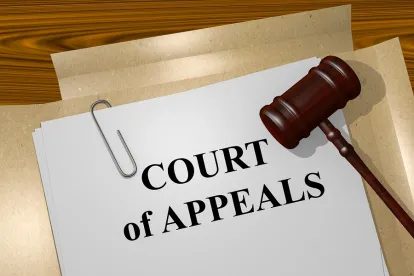Summary
The High Court has issued a judgment dismissing the entirety of the Claimants’ claim in a long-running dispute commenced by a pair of property developers against a Judicial Factor to the estate of a Scottish businessman (the “Deceased”). Squire Patton Boggs represented the successful Defendant, who was awarded the majority of his costs on the indemnity basis.
The judgment emphasises the importance of litigants ensuring that there are no obvious evidential holes in their case prior to trial. Whilst this should go without saying, the judgment demonstrates that the Court is highly unlikely to permit the parties to adduce key evidence at a very late stage (especially items with a long lead-in time, such as expert evidence) to try to paper over those evidential cracks at trial. The case is also a further reminder that if parties fail to call a witness of obvious relevance to their pleaded case, then they do so at their peril.
Background
The case of Clutterbuck & Paton v William Cleghorn (as Judicial Factor to the Estate of Elliot Nichol) has had a complex and long-running procedural history; taking more than 7 years to come to trial. The claim was intimated in April 2011 with a stated value of c.£97m, but was not issued until October 2013.
The Defendant successfully struck out the entirety of that claim as an abuse of process based on the Aldi Stores principle in May 2015 (see our previous blog here). The Claimants obtained permission to appeal that decision, and in March 2017 the Court of Appeal ordered that a small tranche (c.£8-9m) of the Claimants’ original claim be reinstated and proceed to trial, with that trial finally taking place in June 2018.
The dispute concerned a property development in Belgravia. The Claimants had entered into a joint venture agreement (the “JVA”) with the Deceased and Westbrooke, the Deceased’s special purpose vehicle, to convert the four flats in the building back into one large family home, with the view to making substantial profit for the joint venturers. The development encountered numerous problems, meaning that the joint venture made a loss.
Amongst other things, the Claimants alleged that:
-
the Deceased had breached the terms of the JVA by procuring that Westbrooke drew down an additional £1m of borrowing secured against the development, which was paid to the Deceased;
-
the Deceased had caused Westbrooke to deliberately delay the development, causing the property to be sold at a time when the property market in London had significantly dropped; and
-
the development was not completed to the required contractual standard, meaning that the sale price achieved was less than what it should have been.
Judgment
Following an 11 day trial, HHJ Pelling QC dismissed the Claimants’ claims in their entirety. Amongst other things, he held that:
-
Although the additional £1m borrowing was a breach of the JVA:
-
on a proper construction of the JVA, Westbrooke was entitled to c.£400,000 of this in any event, as it was a sum due to Westbrooke upon completion of the JVA, that had gone unpaid;
-
as a matter of fact, the Deceased and his estate had contributed more than £1m (plus interest) to the development, meaning that the Claimants suffered no loss;
-
-
There was no evidence to support an allegation of deliberate delay;
-
There was no expert evidence on which the judge could assess the allegations in relation to defects, or any basis on which he could assess the losses said to flow from those defects.
The Claimants had failed to adduce any expert evidence relating to issues that plainly required such evidence i.e. the standard of work and the value of the property. Whilst the Claimants had made previous applications to adduce expert evidence, this was in relation to other (irrelevant) issues and those applications had been dismissed.
In an attempt to circumvent these issues, the Claimants sought to rely upon property valuations obtained at various points in time during the life of the development. The judge rejected that approach: the valuations did not comply with the CPR requirements; were produced for a different purpose; and the Claimants did not have permission to rely upon those valuations as expert evidence. In the absence of such evidence, the delay claim and the defects claim were bound to fail, as the judge “cannot simply pull a figure from the air as to what price might have been achieved” but for the delay and but for the alleged defects.
The judge also noted that the Claimants had failed to call the main contractor as a witness in support of their allegations that the Deceased had deliberately delayed the development. The judge noted that the Claimants had issued various witness summonses in advance of trial, but had not taken such steps in relation to the main contractor. In the absence of any evidence of deliberate collusion, this failure was described as “significant” by the judge.
Comment
Whilst obvious, this case is a helpful reminder that litigants must closely examine their case and what evidence they require to substantiate it.
Such steps should be taken prior to issuing the claim, but in any event any directions that litigants require in relation to adducing expert evidence should be sought at the first opportunity (usually the first case management conference). Similarly, if litigants cannot obtain the co-operation of a key witness, they should take steps to summon them, to avoid the Court drawing adverse inferences as a result of the party’s failure to call them as a witness.
If litigants do not have their house in order at the start of the trial, then the Court is highly unlikely to permit that party to take late steps to address that, as it could result in de-railing the trial. This would mean that the gaping evidential holes cannot be plugged and the case is highly likely to fail.




 />i
/>i
